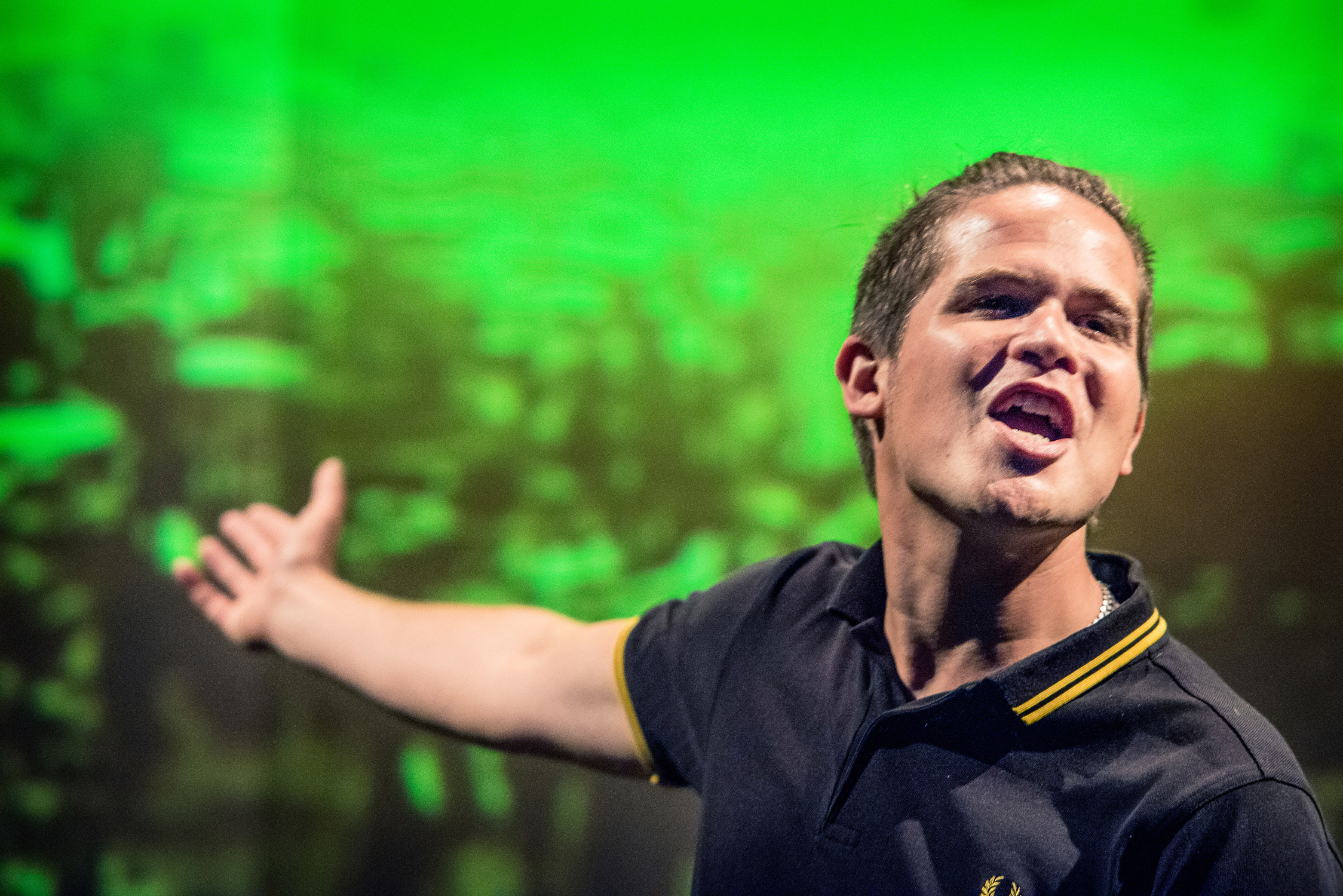
From Blair to Brexit, Luke Wright punctures the post-truth age with this fearless and eyes-wide-open spoken word epic. Using the characters of aspiring students Nick and Johnny Bevan he effortlessly straddles both sides of the middle class/working class tribal divide – briefly united, euphorically, after Blair’s huge majority election win in 1997, but all too soon dashed by the monstrous folly of Iraq, and Tory-lite policies that were to follow. Nick and Johnny’s friendship serves as an excoriating parable of political betrayal, distrust and neglect.
Wright starts us in Nick’s present. Two decades have nearly passed since his passionate embrace of literature and politics at uni. He’s lived the hedonistic London life as a journo for the NME and the Guardian. Now he’s writing PR for an events organiser. The next job, the so-called Urbania Festival, takes him to a place that brings him face to face with his past, and confronts him with the compromises he has made for an easier life. It kick starts him into a search for an old friend and touchstone. In this he cleverly weaves a backstory, a political timeline charting, in particular, Labour’s drift into dysfunction.
The very charismatic Wright wears black Fred Perry and brown Chelsea Doc Martin boots, and has a semi-shaved head with a pulled-back mop of hair tied into a topknot. He prowled the floor of the Wardrobe like a caged hipster lion, sometimes delivering frustrated roars and baring his teeth, occasionally to a surging guitar-led sound track as he jumped between the characters of Nick and Johnny. But there were many other more subtle moments. He played hysterical cameos about Nick’s dad, and the over-excited and easily impressed fellow event workers Milly and Tilly for example. And his visualising of a hilarious Tea with the Tories brought the house down.
Throughout, the cockney rebel genius of Johnny was always there to punctuate and question and rail against mediocrity and disengagement, always quick to take the piss out of Nick, who he had seduced away from a potential life in Law with his passionate outpourings on literature, philosophy and politics in a time of hope. Nick, meanwhile, was constantly conflicted with middleclass guilt and with compromise. Were these two simply fated to become the embodiment of the previous generation, or could there be an escape of sorts? Is politics simply in the business of just same old, same old, but maybe worse? Is there hope?
This is spoken word as good as it gets. Make a note to catch Wright next time he’s in town. While pollsters and pundits seem unable to take accurate readings of the political temperature, he can be relied upon to provide the truth serum we all seem to be missing. ★★★★★ Simon Bishop 22nd November 2016

